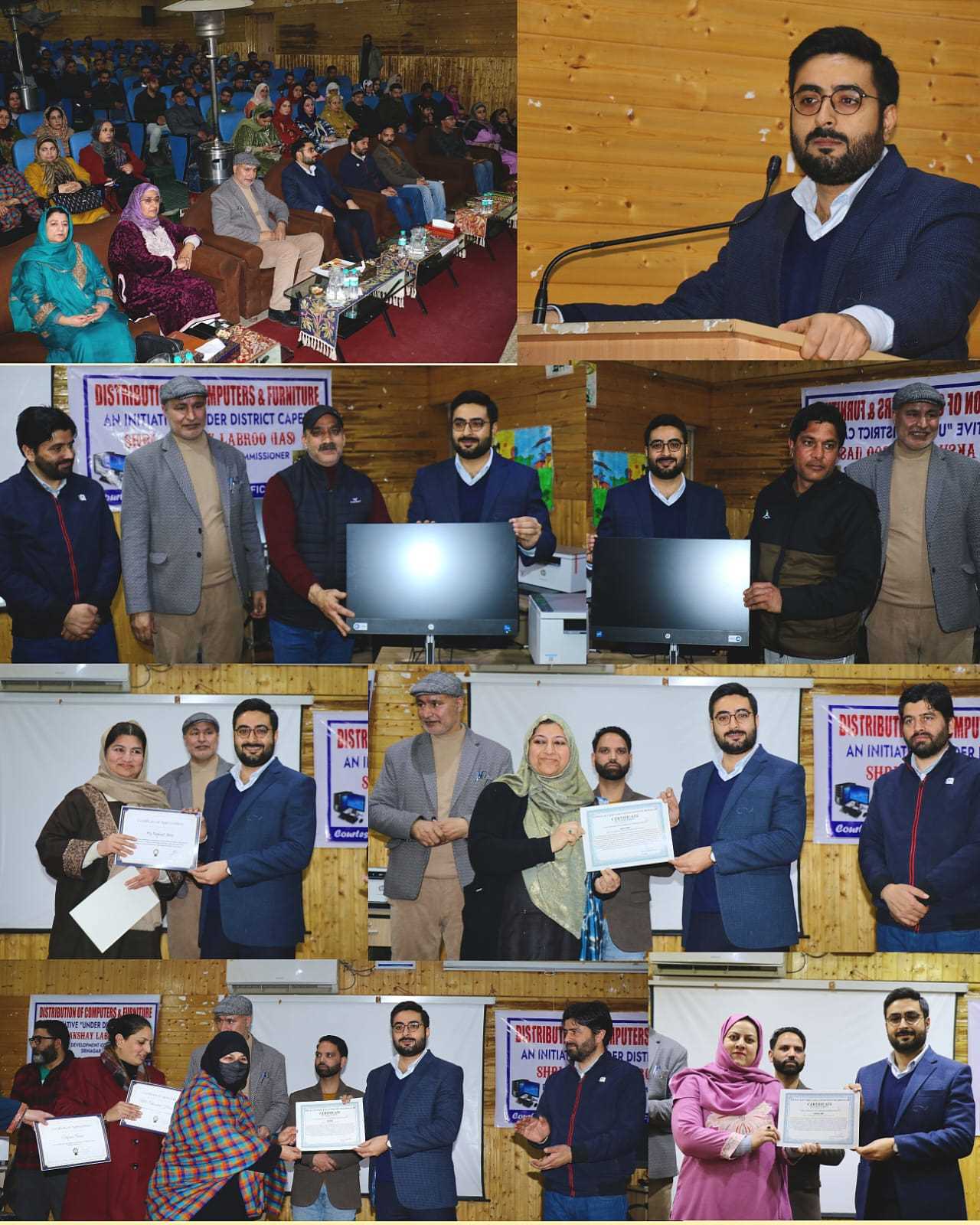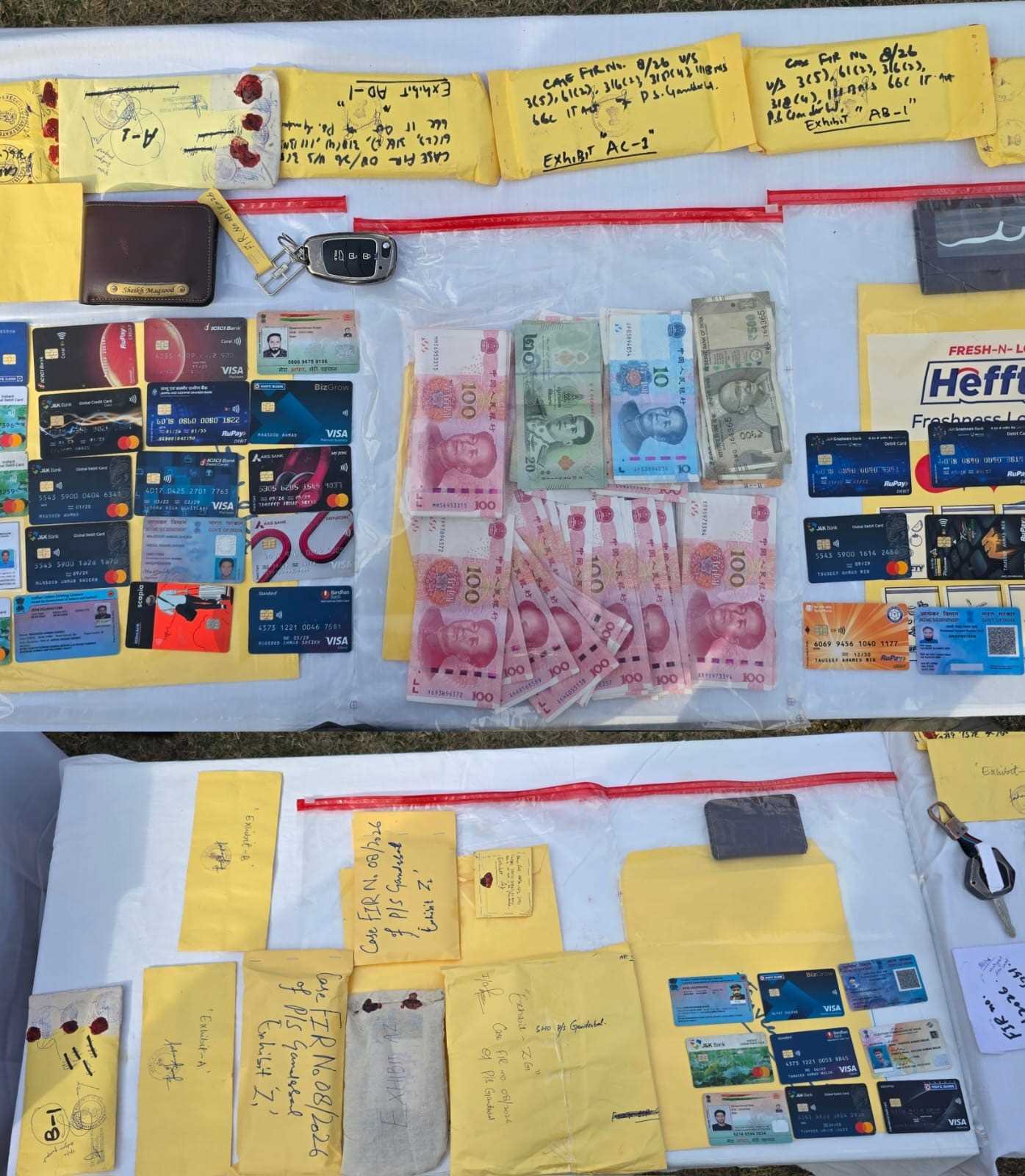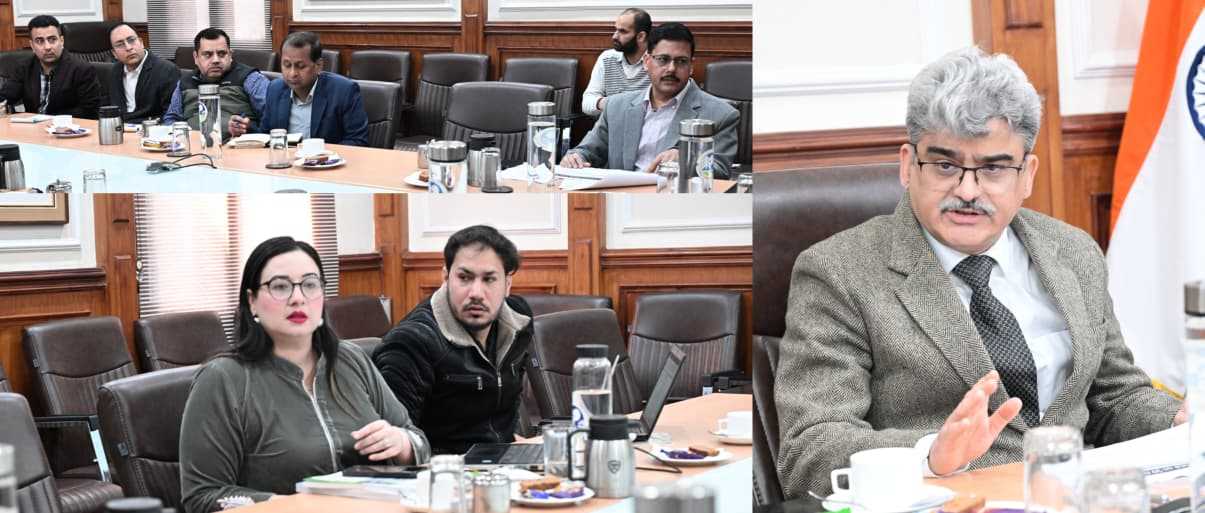
By replacing blocked highways with reliable rail, the apple train delivers hope, fair prices, and a secure future for Kashmir’s growers and India’s consumers
For the first time in history, the Union government has launched a daily parcel train service from Budgam to Delhi, starting September 13, 2025. The initiative, declared by Union minister Ashwini Vaishnaw, seeks to change the horticulture industry in Kashmir by supplying apple-producing farmers with an alternative option to the vulnerable Srinagar–Jammu Highway.
In Kashmir, apples are not simply a fruit, they sustain the Valley's economy. Almost seventy-five per cent of India's apples come from the region, and the livelihood of lakhs of families is dependent on apples, especially those who slash the trees, pack the boxes, sell the produce at the trees, and those who trade the apples throughout the country. Traditionally, the industry has struggled for decades with one common ailment: unreliable road access.
The Srinagar–Jammu Highway has long been the vital link for transporting apples to markets across India. However, each year, it becomes a bottleneck. This year alone, truckloads of apples rotted in Qazigund after being stuck for days. The losses are huge not only for orchardists but for every person involved in the industry. The failure of road infrastructure not only stops fruit trucks but also stops the rooted expectation of farmers, workers, and business people who rely on this sector to provide a livable income for their families.
The ability to use parcel train services is truly transformational as two parcel van coaches full of apples depart Budgam today; one for Delhi and one for Jammu. The idea is to take an initial step to ensure that apples will reach national markets more quickly, safely and fresher. A senior railway official said special arrangements have been made to provide growers with an assured, efficient corridor to deliver their produce. The advantages are apparent: speed, decreasing demurrage cost, and less wastage.
Farmers throughout South Kashmir have accepted the development with open arms. Abdul Majid, an orchardist from Shopian, said that in other seasons, fruit has often rotted on trucks because they were stuck for several days. He believes this train service gives them confidence that they can deliver their produce on time and earn a fair price. Ghulam Nabi, a grower from Pulwama, called it a historic moment, adding that apple farming is not just about seasonal livelihoods but also contributes to the economies of Kashmir. He further said the government should introduce a full train for apples every day of the week because demand for their crop and dependence on timely delivery is enormous.
Kashmir’s apples are not confined to the Valley they are a crucial contributor to India’s national economy. From Delhi’s Azadpur Mandi to the fruit markets of Mumbai, Kolkata, and Chennai, the ripple effect of Kashmir’s harvest spreads across states. The stability and consistency of markets depend on timely supplies from Kashmir provided by traders, commission agents, merchants and even small retailers. The new initiative being put in place with a transition to rail will ensure that apple prices stay fair, supplies are consistent, and consumers are able to continue consuming fresh fruit at reasonable prices across India. In the broadest sense, the Budgam–Delhi parcel train is not only a victory for Kashmir but also for India.
The train service also teaches valuable lessons to the younger generation. Many Kashmiri youth have detached themselves from load-bearing traditional farming, perhaps viewing it as a thing of the past. It is necessary to foster a sense of youth involvement in the horticultural sector. Thinking of apple farming as a way to build a business not only gives them ownership but helps them become economically active, diminishing unemployment and potentially creating employment for others. On top of just growing apples, youth can also be engaged in cold storage management, digital branding, eco-friendly packaging, and app-based supply chain solutions. This engagement of youth will modernize the industry, but also engage the next generation for future horticultural practices.
Beyond apples, Kashmir’s horticultural landscape is rich with cherries, walnuts, pears, and plums. With a dependable railway link to markets across the country, growers will be able to disperse these additional crops to better markets or to more locations than before. The government’s step can be the beginning of a wider logistics revolution that uplifts the entire horticulture sector of the Valley. Orchardists and experts alike emphasize the need for dedicated freight trains, cold storage units at railway stations, and modern packaging hubs to complement this move. If these measures follow, Kashmir’s horticulture will no longer be held hostage by weather or roads it will be integrated into a seamless national network.
It is an important decision on more fronts than mere economics. It represents reaffirmation in an area where it often feels like we deal with too much uncertainty. Each apple-filled coach leaving Budgam is not only filled with apples, it symbolizes the anticipation, the hope, from the farmers who have withstood floods, cloudbursts, and under construction roads but still have their spirit. And it is a statement that Kashmir's red treasure will not rot unattended on roads that are stuck.
The Budgam–Delhi daily parcel train represents a significant milestone both for Kashmir's apple industry and India's horticultural economy. It removes a long-held obstacle, minimizes losses, and creates opportunities for both farmers and the youth. However, this is just the beginning because with enhanced investment in winning storage, logistics, and dedicated freight services, Kashmir's apples could change from a struggling crop to a nationally known brand that highlights India globally. For now, however, the simple sight of apple coaches rolling out of Budgam each day is enough. It is proof that when policy aligns with the needs of people, change is not only possible but transformative.
Email:------------------------shoaibhat2018@gmail.com





By replacing blocked highways with reliable rail, the apple train delivers hope, fair prices, and a secure future for Kashmir’s growers and India’s consumers
For the first time in history, the Union government has launched a daily parcel train service from Budgam to Delhi, starting September 13, 2025. The initiative, declared by Union minister Ashwini Vaishnaw, seeks to change the horticulture industry in Kashmir by supplying apple-producing farmers with an alternative option to the vulnerable Srinagar–Jammu Highway.
In Kashmir, apples are not simply a fruit, they sustain the Valley's economy. Almost seventy-five per cent of India's apples come from the region, and the livelihood of lakhs of families is dependent on apples, especially those who slash the trees, pack the boxes, sell the produce at the trees, and those who trade the apples throughout the country. Traditionally, the industry has struggled for decades with one common ailment: unreliable road access.
The Srinagar–Jammu Highway has long been the vital link for transporting apples to markets across India. However, each year, it becomes a bottleneck. This year alone, truckloads of apples rotted in Qazigund after being stuck for days. The losses are huge not only for orchardists but for every person involved in the industry. The failure of road infrastructure not only stops fruit trucks but also stops the rooted expectation of farmers, workers, and business people who rely on this sector to provide a livable income for their families.
The ability to use parcel train services is truly transformational as two parcel van coaches full of apples depart Budgam today; one for Delhi and one for Jammu. The idea is to take an initial step to ensure that apples will reach national markets more quickly, safely and fresher. A senior railway official said special arrangements have been made to provide growers with an assured, efficient corridor to deliver their produce. The advantages are apparent: speed, decreasing demurrage cost, and less wastage.
Farmers throughout South Kashmir have accepted the development with open arms. Abdul Majid, an orchardist from Shopian, said that in other seasons, fruit has often rotted on trucks because they were stuck for several days. He believes this train service gives them confidence that they can deliver their produce on time and earn a fair price. Ghulam Nabi, a grower from Pulwama, called it a historic moment, adding that apple farming is not just about seasonal livelihoods but also contributes to the economies of Kashmir. He further said the government should introduce a full train for apples every day of the week because demand for their crop and dependence on timely delivery is enormous.
Kashmir’s apples are not confined to the Valley they are a crucial contributor to India’s national economy. From Delhi’s Azadpur Mandi to the fruit markets of Mumbai, Kolkata, and Chennai, the ripple effect of Kashmir’s harvest spreads across states. The stability and consistency of markets depend on timely supplies from Kashmir provided by traders, commission agents, merchants and even small retailers. The new initiative being put in place with a transition to rail will ensure that apple prices stay fair, supplies are consistent, and consumers are able to continue consuming fresh fruit at reasonable prices across India. In the broadest sense, the Budgam–Delhi parcel train is not only a victory for Kashmir but also for India.
The train service also teaches valuable lessons to the younger generation. Many Kashmiri youth have detached themselves from load-bearing traditional farming, perhaps viewing it as a thing of the past. It is necessary to foster a sense of youth involvement in the horticultural sector. Thinking of apple farming as a way to build a business not only gives them ownership but helps them become economically active, diminishing unemployment and potentially creating employment for others. On top of just growing apples, youth can also be engaged in cold storage management, digital branding, eco-friendly packaging, and app-based supply chain solutions. This engagement of youth will modernize the industry, but also engage the next generation for future horticultural practices.
Beyond apples, Kashmir’s horticultural landscape is rich with cherries, walnuts, pears, and plums. With a dependable railway link to markets across the country, growers will be able to disperse these additional crops to better markets or to more locations than before. The government’s step can be the beginning of a wider logistics revolution that uplifts the entire horticulture sector of the Valley. Orchardists and experts alike emphasize the need for dedicated freight trains, cold storage units at railway stations, and modern packaging hubs to complement this move. If these measures follow, Kashmir’s horticulture will no longer be held hostage by weather or roads it will be integrated into a seamless national network.
It is an important decision on more fronts than mere economics. It represents reaffirmation in an area where it often feels like we deal with too much uncertainty. Each apple-filled coach leaving Budgam is not only filled with apples, it symbolizes the anticipation, the hope, from the farmers who have withstood floods, cloudbursts, and under construction roads but still have their spirit. And it is a statement that Kashmir's red treasure will not rot unattended on roads that are stuck.
The Budgam–Delhi daily parcel train represents a significant milestone both for Kashmir's apple industry and India's horticultural economy. It removes a long-held obstacle, minimizes losses, and creates opportunities for both farmers and the youth. However, this is just the beginning because with enhanced investment in winning storage, logistics, and dedicated freight services, Kashmir's apples could change from a struggling crop to a nationally known brand that highlights India globally. For now, however, the simple sight of apple coaches rolling out of Budgam each day is enough. It is proof that when policy aligns with the needs of people, change is not only possible but transformative.
Email:------------------------shoaibhat2018@gmail.com
© Copyright 2023 brighterkashmir.com All Rights Reserved. Quantum Technologies